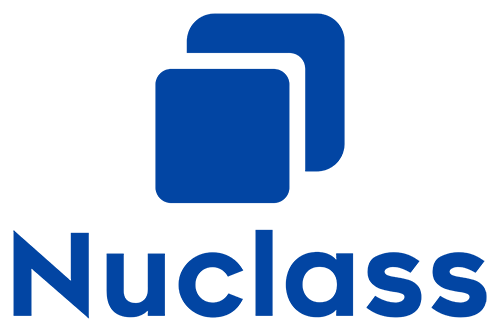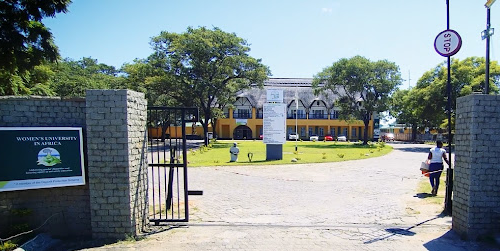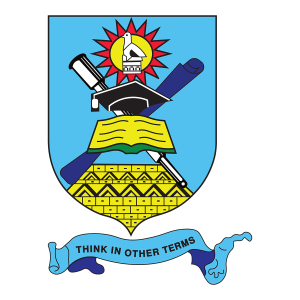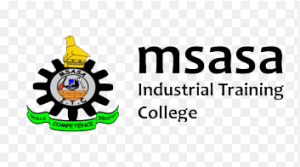The Essentials
Type of Institution: University
Fees per Semester:
Local Students: US$500.00 to US$1 300.00
International Students: US$650.00 to US$2 300.00
Address: 549 Arcturus Road, Harare, Zimbabwe
Phone Number: +263 242 459601/647
Chancellor: E.D Mnangagwa
Vice Chancellor: Prof. Hope Cynthia Sadza
Number of students: 1000+
Website: https://www.wua.ac.zw/
Email: information@wua.ac.zw
Table Of Contents
- Overview
- Contact Details
- Address
- Location
- School Fees
- Courses & Programs
- Vacancies and Entry Requirements
- Logo
- Notable Alumni
- Pros and Cons
- Author’s Review
Overview
The Women’s University in Africa (WUA) is a private university located in Zimbabwe, specifically established to address gender disparities in higher education by focusing on women’s empowerment through education.
Background
Established: WUA was founded in 2002 by Dr. Hope Sadza and Dr. Fay Chung with the vision of promoting higher education for women, particularly those who were marginalized or had limited access to tertiary education.
Location: The main campus is situated in Harare, Zimbabwe’s capital city, with additional campuses and learning centers in Bulawayo, Mutare, and other locations across the country to increase accessibility.
Vision and Mission
Vision: To be a world-class university in promoting gender equality and equity through the provision of quality education.
Mission: To provide flexible and affordable higher education to women, without excluding men, and to create opportunities for women to pursue careers in various fields.
Academic Focus
Specialization: WUA offers a range of academic programs that emphasize gender equity, leadership, and development. The university caters mainly to women but also admits men, aligning with its mission of inclusivity.
Faculties: WUA comprises several faculties, including:
Faculty of Agricultural Sciences
Faculty of Commerce and Law
Faculty of Social and Gender Transformative Sciences
Faculty of Information Technology and Management
Faculty of Health Sciences
Research and Innovation
Research Focus: WUA emphasizes research in areas that promote gender equality, social justice, and sustainable development. The university encourages research that has a direct impact on improving the lives of women and communities.
Collaborations: The university collaborates with local and international organizations, NGOs, and government agencies to advance its research and outreach initiatives.
Community Engagement
Outreach Programs: WUA is actively involved in community engagement through various outreach programs that focus on women’s health, education, and economic empowerment. The university also runs workshops and seminars on issues affecting women and girls.
Scholarships and Support: The university offers scholarships and financial aid to deserving students, particularly women from disadvantaged backgrounds, to ensure that financial barriers do not hinder access to education.
Facilities
Campus Facilities: WUA’s campuses are equipped with lecture rooms, libraries, computer labs, and student support services to facilitate learning and research.
Accommodation: The university provides limited on-campus accommodation, with options for off-campus housing available to students.
Future Prospects
WUA aims to expand its academic offerings, research capacity, and outreach programs to continue making a significant impact on women’s education and empowerment in Zimbabwe and beyond.
Women’s University in Africa Contact Details
You can contact Women’s University in Africa via their landline, email or you can visit their website for further contact details.
Phone Number: +263 242 459601/647
Website: https://www.wua.ac.zw/
Email: information@wua.ac.zw
Women’s University in Africa Address
549 Arcturus Road, Harare, Zimbabwe
Women’s University in Africa Location
Women’s University in Africa is situated in the city of Harare which is also the largest city in Zimbabwe.
Women’s University in Africa Fees
Women’s University in Africa ‘s fees is currently standing at US$500.00 to US$1 300.00 per semester for local students then US$650.00 to US$2 300.00 for international students depending on the program you are studying and the level of degree you are studying. Please contact the institution or visit them to get the latest fees structure as it can change at any term or semester.
Women’s University in Africa Courses & Programs
Women’s University in Africa (WUA) offers a wide range of undergraduate, postgraduate, and diploma programs across various faculties.
Undergraduate Programs
Faculty of Agricultural Sciences
Bachelor of Science in Agriculture
Agribusiness Management
Crop Production and Horticulture
Faculty of Commerce and Law
Bachelor of Business Administration (BBA)
General Management
Marketing
Accounting
Human Resource Management
Bachelor of Commerce in Entrepreneurship
Bachelor of Commerce in Banking and Finance
Bachelor of Commerce in Accounting and Finance
Faculty of Social and Gender Transformative Sciences
Bachelor of Science in Sociology and Gender Development
Bachelor of Science in Development Studies
Bachelor of Social Work
Bachelor of Science in Psychology
Bachelor of Science in Gender and Social Innovation
Faculty of Information Technology and Management
Bachelor of Science in Information Technology
Bachelor of Science in Management Information Systems
Faculty of Health Sciences
Bachelor of Science in Nursing
Bachelor of Science in Midwifery
Bachelor of Science in Public Health
Bachelor of Science in Health Promotion
Postgraduate Programs
Faculty of Commerce and Law
Master of Business Administration (MBA)
Executive MBA
General MBA
Master of Science in Leadership and Corporate Governance
Faculty of Social and Gender Transformative Sciences
Master of Science in Gender and Policy Studies
Master of Science in Development Studies
Master of Science in Social Work
Faculty of Health Sciences
Master of Public Health
Master of Science in Health Services Management
Diploma Programs
Diploma in Education
Early Childhood Development
Primary Education
Diploma in Agriculture
Agribusiness
Horticulture
Diploma in Social Work
Diploma in Gender and Development
Short Courses and Certificate Programs
WUA offers various short courses and certificates aimed at enhancing skills and knowledge in specific areas such as:
Gender mainstreaming
Leadership and management
Community health
Financial management
Project management
Professional Development Programs
WUA also provides professional development programs that cater to working professionals looking to advance their careers in fields such as education, health, social work, and business management.
Women’s University in Africa Vacancies and Entry Requirements
Entry Requirements
Undergraduate Programs
Bachelor of Science in Agriculture
Ordinary Level: At least 5 O-Level passes including English Language, Mathematics, and a Science subject.
Advanced Level: At least 2 A-Level passes in Biology, Agriculture, Chemistry, or other relevant science subjects.
Bachelor of Business Administration (BBA)
Ordinary Level: At least 5 O-Level passes including English Language and Mathematics.
Advanced Level: At least 2 A-Level passes in relevant subjects, such as Business Studies, Economics, or Mathematics
Bachelor of Commerce in Entrepreneurship
Ordinary Level: At least 5 O-Level passes including English Language and Mathematics.
Advanced Level: At least 2 A-Level passes in Commercial subjects or relevant sciences.
Bachelor of Social Work
Ordinary Level: At least 5 O-Level passes including English Language and Mathematics.
Advanced Level: At least 2 A-Level passes in relevant subjects such as Sociology, Psychology, or other social sciences.
Bachelor of Science in Information Technology
Ordinary Level: At least 5 O-Level passes including English Language, Mathematics, and a Science subject.
Advanced Level: At least 2 A-Level passes in Mathematics, Physics, or Computing.
Bachelor of Science in Nursing
Ordinary Level: At least 5 O-Level passes including English Language, Mathematics, and Science subjects.
Advanced Level: Not typically required, but relevant health-related subjects are beneficial.
Postgraduate Programs
Master of Business Administration (MBA)
Bachelor’s Degree: An undergraduate degree from a recognized institution.
Experience: Relevant work experience may be required.
Master of Science in Gender and Policy Studies
Bachelor’s Degree: A relevant undergraduate degree.
Experience: Experience in gender-related fields or development work may be beneficial.
Master of Public Health
Bachelor’s Degree: A degree in health sciences or a related field.
Experience: Relevant work experience in the health sector is often preferred.
Diploma Programs
Diploma in Agriculture
Ordinary Level: At least 5 O-Level passes including English Language and Mathematics.
Experience: Relevant experience in agriculture or farming is advantageous.
Diploma in Social Work
Ordinary Level: At least 5 O-Level passes including English Language and Mathematics.
Experience: Experience in social services or community work can be beneficial.
Application Process
Applications are typically submitted online through the university’s admissions portal, with required documents such as academic transcripts, identification, and certificates. Specific deadlines and requirements can be found on the university’s official website.
For the most accurate and up-to-date information on both vacancies and entry requirements, it’s best to consult the Women’s University in Africa’s official website or contact their admissions and human resources departments directly.
Women’s University in Africa Logo
Below is the logo of Women’s University in Africa with excellent quality and it is available to download in PNG (transparent file) JPEG and PDF.
Women’s University in Africa Pros and Cons
Pros
Focus on Gender Equity: WUA is dedicated to promoting gender equality in higher education and providing opportunities specifically for women, which helps address gender disparities in academia.
Supportive Learning Environment: The university creates a supportive and empowering environment for women, including mentorship programs and networking opportunities.
Specialized Programs: Offers a range of programs tailored to the needs of women and the broader community, including unique courses in gender studies and development.
Community Engagement: WUA is involved in community service and outreach, offering programs and workshops that directly benefit local communities.
Flexible Learning Options: Provides flexible learning options such as part-time and distance learning programs, which cater to working professionals and those with other commitments.
Professional Development: The university emphasizes professional development through its courses and short programs, helping students and professionals advance their careers.
Focus on Women’s Health and Empowerment: Includes programs in health sciences and development that are crucial for improving women’s health and empowerment.
Cons
Limited Resources: As a private institution, WUA may face limitations in resources and funding compared to larger public universities, which can impact infrastructure and facilities.
Size and Scope: Being a specialized institution, its range of programs and research opportunities might be more limited compared to larger, multi-disciplinary universities.
Perception Issues: Some may perceive the university as less prestigious compared to older, established institutions, although it has a strong focus on its niche areas.
Financial Constraints: Students may face financial challenges, particularly if they are from disadvantaged backgrounds, despite efforts to provide scholarships and financial aid.
Geographical Reach: While it has multiple campuses, its geographical reach might still be limited compared to universities with a larger national or international presence.
Focus on Women: While the focus on women is a strength, it might be viewed as a limitation by those seeking a more diverse or balanced educational environment.
Author's Review
The Women’s University in Africa (WUA) stands out as a pioneering institution dedicated to promoting gender equality through higher education. Its focused approach on empowering women and addressing gender disparities makes it a vital player in advancing women’s education and development in Zimbabwe and beyond.
The university’s specialized programs, supportive learning environment, and community engagement initiatives reflect its commitment to creating meaningful opportunities for women.
However, like any institution, WUA faces challenges such as limited resources and perceptions of prestige compared to larger, more established universities. Financial constraints and a specialized focus might also impact its ability to offer a broad range of programs and facilities.
Despite these challenges, WUA’s dedication to gender equity and its innovative approach to education offer significant benefits to its students and the wider community.
The Women’s University in Africa represents a critical asset in the landscape of higher education, particularly in its role in empowering women and fostering social development.
Its unique focus and initiatives are commendable, and its impact on women’s education is both profound and transformative. As it continues to grow and evolve, addressing its challenges while leveraging its strengths will be key to furthering its mission and expanding its influence.



